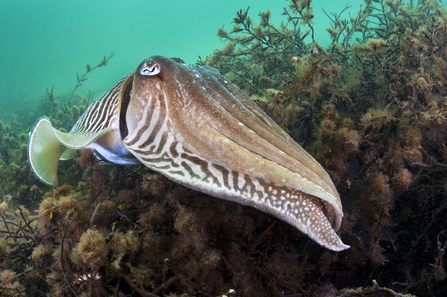Eighty percent of people agree that marine wildlife should be treated with the same care as land-based wildlife, a new survey has found.
The independent research was conducted by Savanta for The Wildlife Trusts, ahead of National Marine Week (26th July to 10th August), which is the Trusts’ annual celebration of the seas.
The survey comes as the UK Government consults on the banning of bottom trawling in 41 offshore Marine Protected Areas (MPAs) in English waters which have been designated as protected sites due to the importance of their seabed habitats.
MPAs are similar to nature reserves on land and there are 377 in the UK’s seas.


